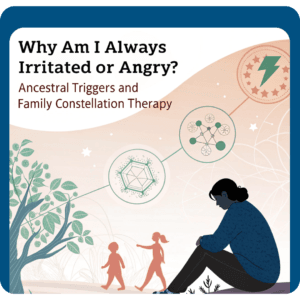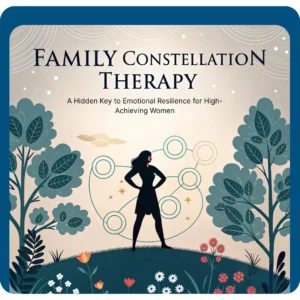Parenting: A Guilt Trip
Parenting has been hard, especially for parents of millennials and more so for parents of Gen Z. With the onset of the information age, socio-economic upheavals, and breakdown of the family structures, parenting has become a domain of strategic planning and management. In the movie Taare Zameen par, you could see the child being put through intense routines, training and discipline to prepare the child for a fairly competitive and cut-throat world; and if the child was unable to adhere to the rules, parents saw it as a failure on their part and that of their child’s. A guilt trip was inevitable on both ends. Child was made to feel guilty for not being good enough and later on the parents were blamed for the emotional turmoil and trauma the child went through in the formative years. It has not been easy for either of them. Being a parent of the millennial came with much more practical responsibility than that of the previous generation. Millennials on the other hand, had the responsibility of breaking through generational barriers, trauma and family unconsciousness.
However, having gone through this style of parenting, parents of Gen Z are being more cautious, conscious and aware of their parenting approach.
Parenting is a much more complex process than understood. In metaphysical terms, parent-child relationship is equal based on karmic equations. One could choose an authoritative father to offset the debt of power and control from a previous life; one could choose a victimized mother to finally be the saviour one couldn’t be in the previous life; parents may choose a disabled child to learn their life lesson of that of caring, vulnerability and unconditional love. The karmic theory does influence a parent-child relationship but it is not limited to that. There are several other factors involved in parenting, of which, CHOICE is the most important.
Choices are not subject to rationalisation. This is a departure from the general understanding of ‘choice’ as logical, based on facts or deterministic. If and when we find ourselves justifying a choice, it no longer carries the texture of a true choice. It is then a judgement; and judgement creates limitations.
‘What choices have you made in the past that has led to this relationship with your child?’ Is a question that can give a lot of clarity to what might be happening with you. What choices have you made as a child that has resulted in the kind of relationship you have with your mother and father? What choice can you make now to have more ease in the parent-child relationship? A good idea would be to make a list of these choices and see for yourself if they work for you now. If you can create a choice, you can very well uncreate it and make another one. Situations cannot change if you don’t look at these and consciously decide to change what doesn’t work for you.
We had a 7 years old boy in our day care centre whose parents held a high position in one of the top notch multinational companies. The child felt neglected most of the time, to say the least. He was the last one to be picked from our centre. Usually, he had to wait an additional 30-40 minutes every day. He had chips for breakfast and lunch owing to the parent’s hectic schedules, which didn’t allow them much time to pack his lunch. This child, on the other hand, chose to guilt trip the parents into buying the most expensive toys, ridiculous amounts of pocket money, among other unlike child demands. They made it work both ways till it didn’t. One can argue the rightness and wrongness of this way of parenting, leading to further complications of guilt, regret, blame and shame. However, if one acknowledges it as just a choice without judgement, one can choose a different reality from there onward.
As parents, you are doing the best you know how to and as children, you are coping with it the best you know how to. If we were to get out of the blame game, what can show up for all of us? If we could see our parents as just beings and not the direct manifestation of divinity, the relationship would be so much more expansive. For parents, it would be much more contributing to give your children an equitable seat at the table and at the same time prepare them for the real world. In other words, give them roots to ground and wings to fly.
—
Sonali Mittra (Therapist and Transformation Coach) and Navita Sharma (Nutritionist, Access Bars Practitioner)
Because you care—parenting comes with high expectations (yours or others’), and guilt often shows up when you feel you didn’t meet them.
Focus on what works for you and your child. Limit time on social media, and remember no family is perfect.
Totally okay. Mistakes help you learn, grow, and become better. They don’t define you.
Acknowledge what happened, say sorry if needed, learn from it, then treat yourself with kindness, like you would a friend.
Yes. Honest conversations, apologies when needed, and reassurance can rebuild trust and ease guilt.
Self-care. Even small breaks, doing something you enjoy, resting—these reset your mind and reduce overwhelm.
Yes. If guilt starts affecting your daily life (sleep, mood, relationships), talking with a therapist or counsellor helps.
Think what’s possible given your time, energy, responsibilities. Set goals that are kind but challenging, not perfect.
Not always. It may never disappear fully, but you can learn to manage it so it doesn’t control you.
Notice small wins—laughs with your child, moments of connection. Celebrate them daily, no matter how small.





This article on parenting guilt truly hit home. It’s so easy to fall into the trap of feeling like we’re not doing enough as parents or blaming our own upbringing for personal struggles. But as you mentioned, recognizing our choices—without judgment—can be so liberating. It’s a shift in perspective that every parent (and child) needs!
Wow, this post hit home! Parenting is indeed a guilt trip, and it’s comforting to know that many of us share these feelings. I especially loved your point about setting realistic expectations instead of constantly trying to be a ‘perfect parent.
This article truly resonates with me! Parenting guilt is something so many of us struggle with, and it’s refreshing to see it discussed so openly. The way you described the internal battles parents face really hit home.
This article truly resonates with me! Parenting can feel like a guilt trip so often, especially when balancing career and personal time. The way you’ve highlighted the emotional struggles and the need for self-compassion is refreshing.
This article on parenting guilt was so validating. It’s comforting to know that feeling this way doesn’t mean I’m a bad parent. Thank you for the empathy and wisdom—it truly helps.
What a refreshing take on parenting guilt! I always thought it was just me feeling like I’m not doing enough, but this blog helped me see that it’s a shared experience. Great tips on managing self-blame too.
This post about parenting guilt hit home for me. I never realized how much pressure I was putting on myself until I read this. Thank you for putting words to what so many of us silently struggle with.
The discussion on parenting a guilt trip in this article is profound. It emphasizes the importance of choice and awareness in parenting.
Exploring the idea of parenting a guilt trip has been enlightening. It’s essential to move towards more conscious and guilt-free parenting.
Parenting a guilt trip is a concept many can relate to. This article encourages us to break free from guilt-driven parenting.
The article on parenting a guilt trip provides valuable insights. It’s a call to introspect and transform our parenting approaches.
Thank you for shedding light on parenting a guilt trip. Recognizing the patterns and making conscious choices can lead to healthier relationships.
This piece on parenting a guilt trip offers a fresh perspective. Understanding the karmic equations in parent-child dynamics is truly eye-opening.
The concept of parenting a guilt trip resonates with me. It’s a reminder that awareness and conscious choices can break the cycle of guilt in parent-child relationships.
Reading this article on parenting a guilt trip made me reflect deeply on my own experiences. It’s enlightening to see how generational patterns influence our parenting styles.
Parenting guilt is rarely discussed and you’ve done such a good job shedding light on it. Loved every part of this blog!
This article on parenting guilt made me feel less alone in my journey as a mom. Beautifully written and very relatable!
Never thought parenting guilt could affect mental peace so deeply until I read this. Glad someone finally talked about this openly.
I’ve battled parenting guilt for years and your post gave me a new perspective on handling it. Such a thoughtful piece.
Parenting guilt is such a real struggle, and this blog captured the feeling perfectly. Thank you for sharing these insights!
This post on parenting guilt felt like you read my mind! It’s reassuring to know that so many parents go through this too.
This article helped me realize that guilt doesn’t make me a better parent—it just exhausts me. Thank you for this gentle reminder to lead with love, not shame.
Wow—this was so validating. Parenting often feels like walking a guilt trip tightrope. Your blog gave me permission to be human in my parenting journey.
It’s rare to see honest takes like this on parenting guilt trips. As a father, I’ve felt this too, but never knew how to express it. Thank you for bringing light to this hidden burden.
This post hit home! I’ve been stuck in the guilt trip loop for years, thinking I’m not doing enough as a mother. Your words reminded me that compassion for ourselves is just as important.
Reading this made me feel so understood. Parenting is such a constant guilt trip—your blog captures that emotional rollercoaster perfectly. Thank you for making space for this conversation.
This post on parenting guilt really hit home. It’s amazing how much pressure we silently carry as parents. Grateful for this perspective!
Thank you for sharing such an honest take on parenting guilt. It’s comforting to know I’m not alone in feeling this way — beautifully written!
What a liberating read! Parenting guilt is something no one talks about enough. Loved how you explained the impact of unhealed patterns. Healing ourselves really is the first step toward raising emotionally healthy children.
This is such a powerful reminder that guilt shouldn’t be the foundation of our parenting journey. Thank you for touching on this with so much compassion and honesty. Definitely sharing this with my mom group!
Beautifully written! Parenting often feels like walking on a tightrope of expectations and emotions. This post gave me a refreshing sense of reassurance—it’s okay to be imperfect and still be enough.
Wow, this post really hit home! I didn’t realize how much guilt I was silently carrying as a parent. Your perspective on conscious parenting truly helps shift the narrative from blame to healing. Thank you for this clarity!
This was a refreshing take. Too often parenting guilt trip gets dismissed as mere overthinking when it’s really emotional burden. Thank you for validating that complex mix of fear, aspiration, and love with such clarity.
Brilliantly written! I loved how you unpack parenting guilt trip beyond blame—into choices, awareness, and realistic expectations. It’s time we approached parenting with more kindness toward ourselves.
I’ve often caught myself in the loop of feeling like every shortfall is my fault. The idea of stepping back and recognizing that parenting guilt trip as more than just personal failure—not perfection—is a liberating shift. This blog post was so empathetic and grounding in tone.
Reading this felt like seeing my own story reflected back. The phrase parenting guilt trip sums up so many pressure points—endless comparisons, self‑doubt, and unspoken expectations. Thank you for articulating it so clearly and offering a more conscious approach.
Reading “Parenting: A Guilt Trip” truly resonated with me. The way the article unpacks how both child and parent can become entangled in karmic guilt trips—and how that dynamic can unknowingly shape behaviors—is eye-opening
Thank you for addressing something so real and often brushed under the rug. The idea that neither party feels ‘enough’ stuck with me long after reading. It’s brave to call it out, and thoughtful writing like this helps us heal.
Brilliantly unpacked! I never considered how guilt can subtly loop between parent and child—I’ve certainly felt both sides. This article offers a gentle invitation to reflect rather than blame. A much-needed perspective.
This piece hit home. Growing up, I constantly felt that I wasn’t doing enough—even though my parents were supportive. It’s eye-opening to think how guilt trips can be passed down. I appreciate how this article brings that unspoken tension to light. Thank you for putting these words out there.
This article struck a chord. Labeling parenting as a ‘guilt trip’ isn’t negative—it’s honest. Exploring the subtler layers, like familial expectations and emotional debt, helps me recognize where I unconsciously pass on guilt. Very valuable insights for anyone striving to parent with awareness instead of obligation.
Thank you for writing this—seeing ‘Parenting: A Guilt Trip’ as a deeper, metaphysical connection rather than just duty was eye-opening. The idea of karmic equations in family patterns helped me think differently about the guilt I often carry as a parent. It’s a comforting shift toward compassion, both inward and outward.
This post really resonated with me—describing parenting as a guilt trip captures that heavy, almost spiritual tug of obligation so well. I appreciated how it reframes the parent-child relationship beyond just roles and delves into karmic balance and emotional inheritance. It’s a gentle reminder to look past guilt and see parenting through a lens of mutual healing.
Really thoughtful post. The way you break down the emotional burden many parents carry — guilt, shame, overthinking — makes it easier to feel we’re not alone. I agree that guilt should not be the default reaction. Do you have any advice for parents whose guilt comes more from societal expectations (e.g. “good parent” stereotypes) rather than personal regrets
Thank you for writing this. Your article encourages a healthy approach to parenting — one that allows for mistakes and learning instead of guilt and regret. I especially liked the suggestion of self-compassion. It would be helpful if you could share a few practical exercises or thought processes that helped you or others ease parental guilt in real life.
Great piece. As a father who’s often torn between work and family, the “guilt trip” mindset can be overwhelming. Your point that parenting is more about consistent love, not perfection, felt like permission to let go of unrealistic standards. Do you think guilt ever has a positive role — like prompting us to reflect or change — or is it always detrimental
I appreciate the honesty in this article. The part where you mention that “guilt doesn’t equal bad parenting” was comforting. As a mother, I sometimes catch myself apologizing for decisions made with good intent. I wonder whether guilt might sometimes cloud our judgment — what are your thoughts on distinguishing useful guilt (that helps us grow) vs unhelpful guilt (that drags us down)
This post really resonated with me. I’ve often felt that as a parent, I’m walking a tightrope: trying to do what’s best and yet constantly second-guessing. Your insight about guilt being “part of the journey” (instead of a sign of failure) hit home. I’m curious — how do you suggest we deal with guilt when external pressures (society, family) make us doubt our choices
A much-needed conversation around parenting, guilt, and emotional legacy. This resonates so much with modern parents juggling their own unresolved feelings and children’s needs. Your clarity gives hope for empathy over pressure.
this post really resonated with me. As a parent, I sometimes feel the silent pressure to do everything ‘right’, but your insight helped me see that guilt may not always be about actual mistakes, but inherited beliefs. Eye-opening and needed.
This article on parenting a guilt trip resonated deeply. The idea that choices aren’t truly choices once justified hit home for me — it has changed how I think about past conflicts with my teen. Beautifully written and thought-provoking